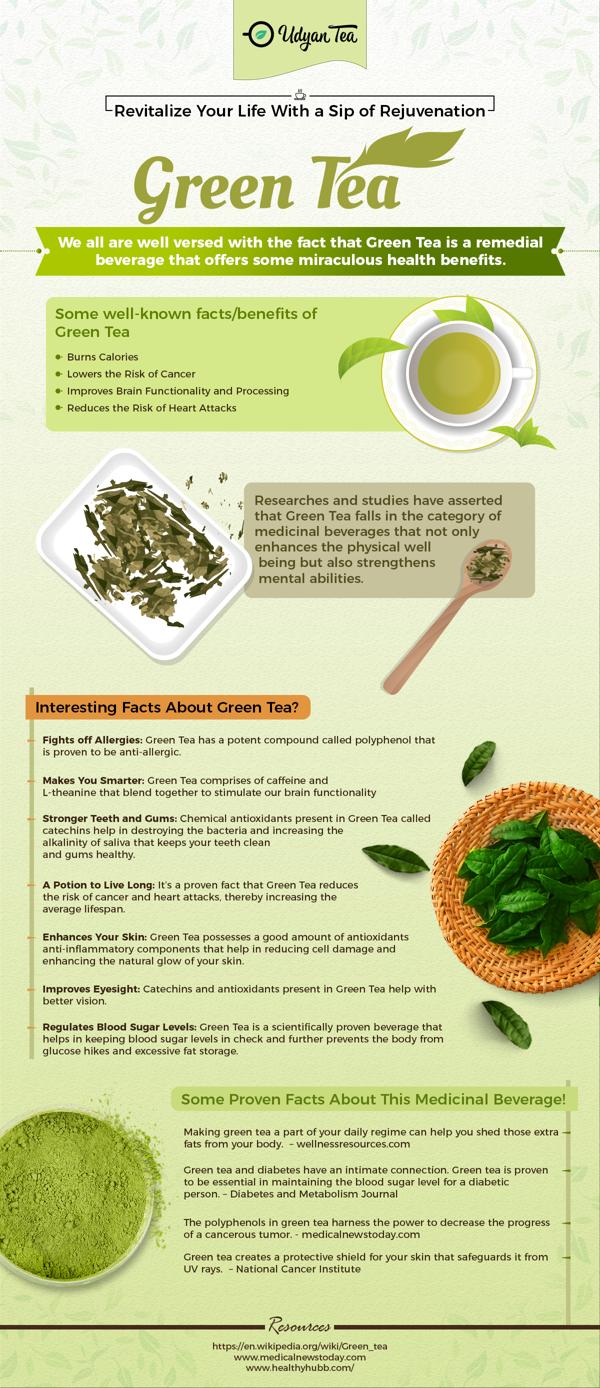Overview of Green Tea
People have been drinking infusions of tea for many years, starting in China and India. Today, tea is devoured more generally than some other beverage on the world aside from water. Billions of people drink tea and an extensive number of studies show tea have numerous medical advantages. Green tea is one of the most advantageous drinks you can consume. It’s without sugar, doesn’t have any calories, and is loaded with antioxidants prevention agents that give plentiful health benefits. Examine the infographic underneath to recognize why you should start drinking this remarkable green tea right now.
Defining Green Tea and Understanding Its History
Green tea is made by lightly steaming leaves from a plant called Camellia Sinensis, which is a similar plant used to make black and oolong teas. Tea-drinking is a ritual people have been rehearsing for quite a long time, going back to 2737 B.C. in Asia. Even in those days, people perceived the healing properties of tea.
What’s in Green Tea? A Look at Its Nutrition Facts
Brewed green tea is principally water-based, which implies it’s free of the typical macronutrients found in different foods and beverages. It gets its solid notoriety from mixes called catechins, explicitly epicatechins, epicatechin-3-gallate, epigallocatechin, and EGCG.
Caffeine and Health Benefits of Green Tea
There is a ton of buzz right now pretty much all the health benefits of green tea, and the lower caffeine levels. At this moment it is too soon to capably say that cutting edge logical investigations demonstrate the health benefits being guaranteed. Because green tea grows in such a significant number of districts and can be prepared in such a significant number of various courses, tests on one tea do not prove the effects of all tea. Indeed, even your brewing method will change the chemical compounds implanted, and their rate of retention.
How to Brew Green Tea
The best green tea on the planet is rich, sweet and full in flavor with waiting for lingering aftertastes. Sadly, many people try green tea first when it is either no longer fresh, or when it is brewed improperly. This prompts the recognition that green tea bitter or extremely grassy.
Precautions
Green tea contains tannins, which can decrease the retention of iron and folic acid. In that capacity, it might be better for ladies who are pregnant or breastfeeding to avoid. Individuals who are weak should be cautious drinking tea around mealtime.
Those taking anticoagulant drugs, for example, warfarin (Coumadin, Jantoven) should drink green tea with alert because of its nutrient K content, which is necessary for blood coagulation.

